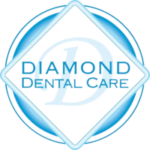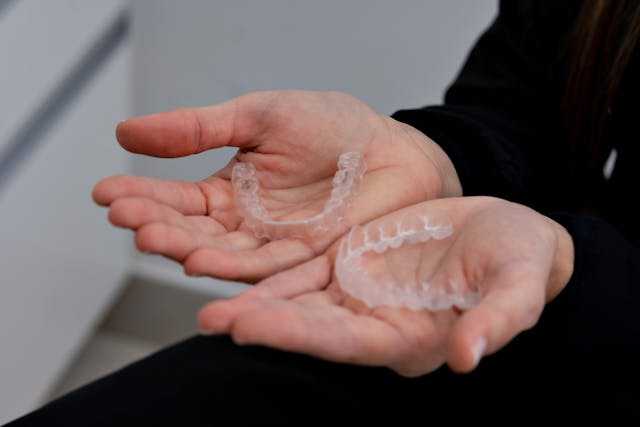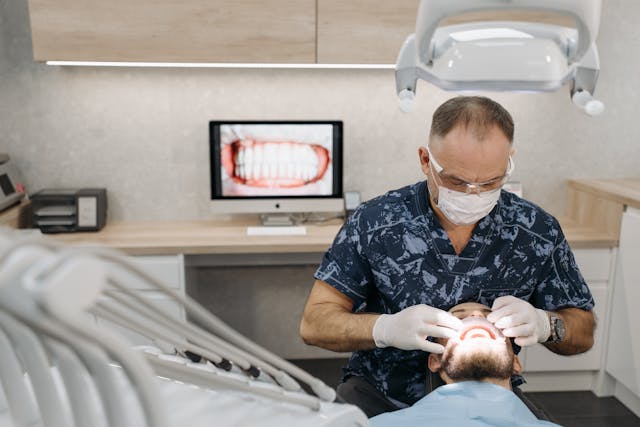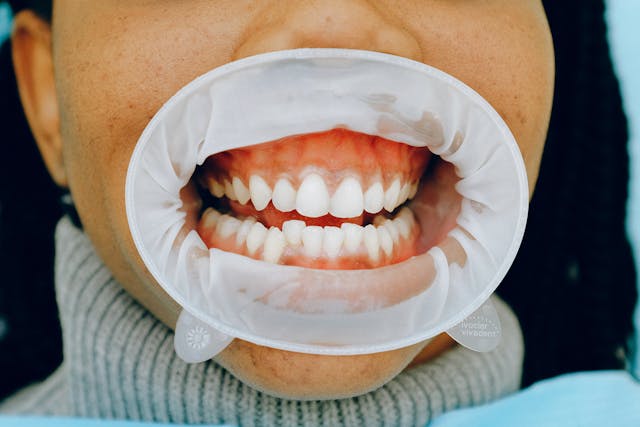Teeth cleaning is a fundamental aspect of maintaining good oral health. From preventing cavities to promoting fresh breath, the benefits are numerous. In this article, we’ll delve into various teeth cleaning techniques and explore the advantages of incorporating them into your daily routine.
At Diamond Dental Care, we can examine you in our cosmetic dentistry office and discuss what you don’t like about your smile. If you have gaps between your teeth or they are crooked, stained, or misshapen, we can fix them in our dental office. There are several ways we can address most aesthetic issues, so we will conduct an examination, take x-rays, discuss the timeframe we are working with, and then present you and your parents with a variety of options to choose from. Since some have set time constraints, it is best to schedule your appointment with our office as soon as possible. You can do so by calling (909) 860-7579. You can also follow us on Facebook or provide your valuable feedback at Yelp. Thanks.
Introduction
Maintaining healthy teeth goes beyond just a bright smile. It contributes to overall well-being, affecting everything from digestion to heart health. Proper teeth cleaning techniques are pivotal in achieving and preserving oral health.
Why Teeth Cleaning Matters
Your teeth are more than just tools for chewing; they play a crucial role in your overall health. Neglecting oral hygiene can lead to various issues, including cavities, gum disease, and even systemic problems like heart disease. Regular teeth cleaning is a simple yet effective way to prevent these issues.
1. Common Teeth Cleaning Techniques
Brushing: The Basics
The cornerstone of oral hygiene, brushing removes plaque and prevents tooth decay. Use a soft-bristled brush and fluoride toothpaste for optimal results.
Flossing: A Crucial Step
Flossing reaches areas your toothbrush can’t, removing debris and preventing gum disease. Make it a daily habit for comprehensive oral care.
Mouthwash: Its Role in Oral Care
Mouthwash isn’t just for fresh breath; it helps kill bacteria and promotes healthier gums. Choose an antiseptic mouthwash for added protection.
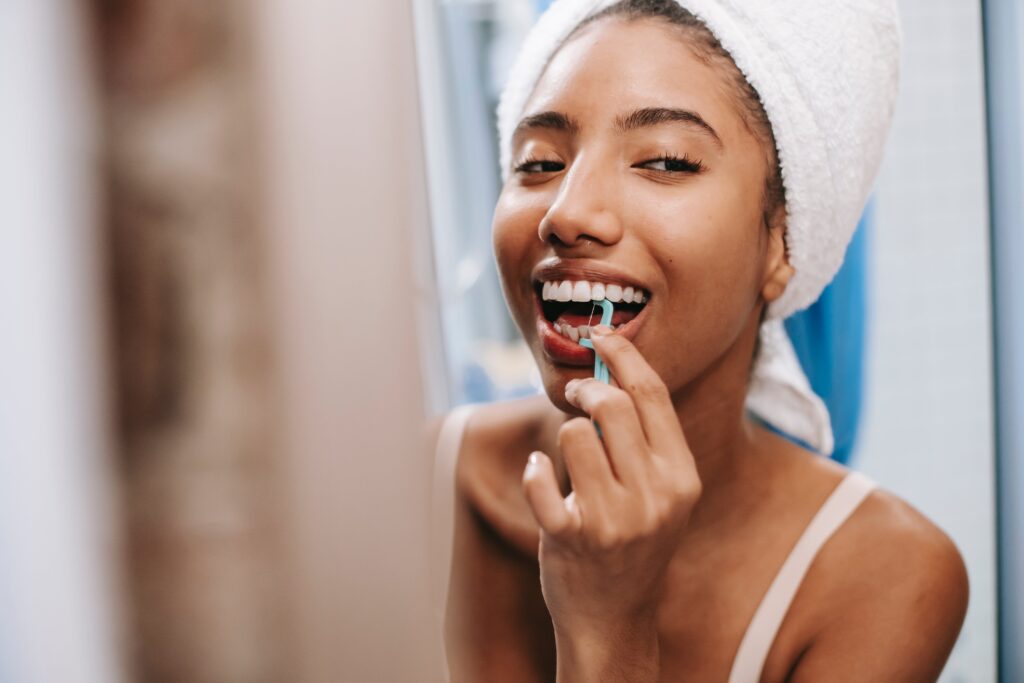
2. Professional Teeth Cleaning Procedures
Dental Cleanings: What to Expect
Regular dental cleanings are essential for a thorough cleaning and examination. Your dentist will remove plaque and tartar, ensuring your teeth are in top-notch condition.
Scaling and Polishing: In-Depth Explanation
Scaling removes stubborn tartar while polishing smoothens the tooth surface. Together, they contribute to a cleaner, healthier smile.
3. Benefits of Regular Teeth Cleaning
Prevention of Cavities and Gum Disease
Regular teeth cleaning prevents the buildup of plaque and tartar, reducing the risk of cavities and gum disease.
Fresher Breath and Improved Aesthetics
Clean teeth mean fresher breath and a more aesthetically pleasing smile, boosting your confidence.
Lowering the Risk of Systemic Diseases
Maintaining oral health has been linked to a lower risk of systemic diseases such as heart disease and diabetes.
4. Choosing the Right Dental Products
Toothbrush Selection Tips
Choose a toothbrush with soft bristles and replace it every three to four months for optimal effectiveness.
Types of Dental Floss and Their Uses
Different types of dental floss cater to various needs. Experiment to find the one that works best for you.
Selecting an Effective Mouthwash
Look for a mouthwash with fluoride and antimicrobial properties to maximize its benefits.
5. Teeth Cleaning for Different Age Groups
Pediatric Dental Care
Instill good oral hygiene habits in children early on for a lifetime of healthy smiles.
Adult Oral Hygiene Considerations
Adjust your oral care routine as you age, considering factors like gum sensitivity and potential dental issues.
Senior Dental Care
Specialized dental care becomes more critical for seniors. Regular check-ups are essential for maintaining oral health.
6. Natural Teeth Cleaning Alternatives
Oil Pulling: What is it and Does it Work?
Oil pulling involves swishing oil in your mouth to remove bacteria. While it’s not a substitute for traditional methods, some find it beneficial.
Baking Soda and Hydrogen Peroxide as Natural Agents
These household items can be used for their mild abrasive properties, aiding in plaque removal.
7. Overcoming Common Teeth Cleaning Challenges
Dealing with Dental Anxiety
If anxiety hinders your dental visits, communicate with your dentist, and consider relaxation techniques to ease your nerves.
Finding Time for Proper Oral Care
Even with a hectic schedule, prioritize your oral health. Quick brushing and flossing sessions can make a significant difference.
8. The Connection Between Diet and Oral Health
Foods That Promote Healthy Teeth
Incorporate foods rich in calcium and vitamin D for stronger teeth. Crunchy fruits and vegetables can also help clean your teeth naturally.
Foods to Avoid for Optimal Oral Hygiene
Limit sugary snacks and acidic beverages, as they contribute to tooth decay and erosion.
9. Teeth Cleaning and Orthodontic Care
Special Considerations for Individuals with Braces
Maintaining oral hygiene becomes more challenging with braces. Specialized tools, like interdental brushes, can be beneficial.
Maintaining Oral Health During Orthodontic Treatment
Regular dental check-ups are crucial during orthodontic treatment to address any emerging issues promptly.
10. Teeth Cleaning Tips for Busy Lifestyles
Quick and Effective Oral Care Routines
Opt for electric toothbrushes and interdental brushes for efficient cleaning in minimal time.
Portable Dental Products for On-the-Go Use
Carry travel-sized dental products to ensure you can maintain oral hygiene wherever you go.
11. Misconceptions About Teeth Cleaning
Addressing Common Myths and Misconceptions
Dispelling myths, such as the belief that brushing harder is better, to ensure proper oral care practices.
Conclusion
In conclusion, prioritizing teeth cleaning is a simple yet powerful way to enhance your overall well-being. From preventing cavities to maintaining fresh breath, the benefits are undeniable. Make oral hygiene a non-negotiable part of your routine for a lifetime of healthy smiles.
FAQs
1. How often should I visit the dentist for teeth cleaning?
A: Regular dental cleanings are recommended every six months.
2. Can oil pulling replace traditional teeth cleaning methods?
A: While oil pulling can be beneficial, it is not a substitute for brushing and flossing.
3. Are electric toothbrushes more effective than manual ones?
A: Electric toothbrushes can be more effective in removing plaque, but proper technique is crucial.
4. Is there a specific age to start using dental floss?
A: Children can start using dental floss as soon as they have two teeth that touch.
5. What is the future of teeth cleaning technology?
A: Advancements in dental technology may include smart toothbrushes and innovative treatments for optimal oral care.
Book An Appointment Today For Patients Near Diamond Bar
[wpforms id=”2474″]
